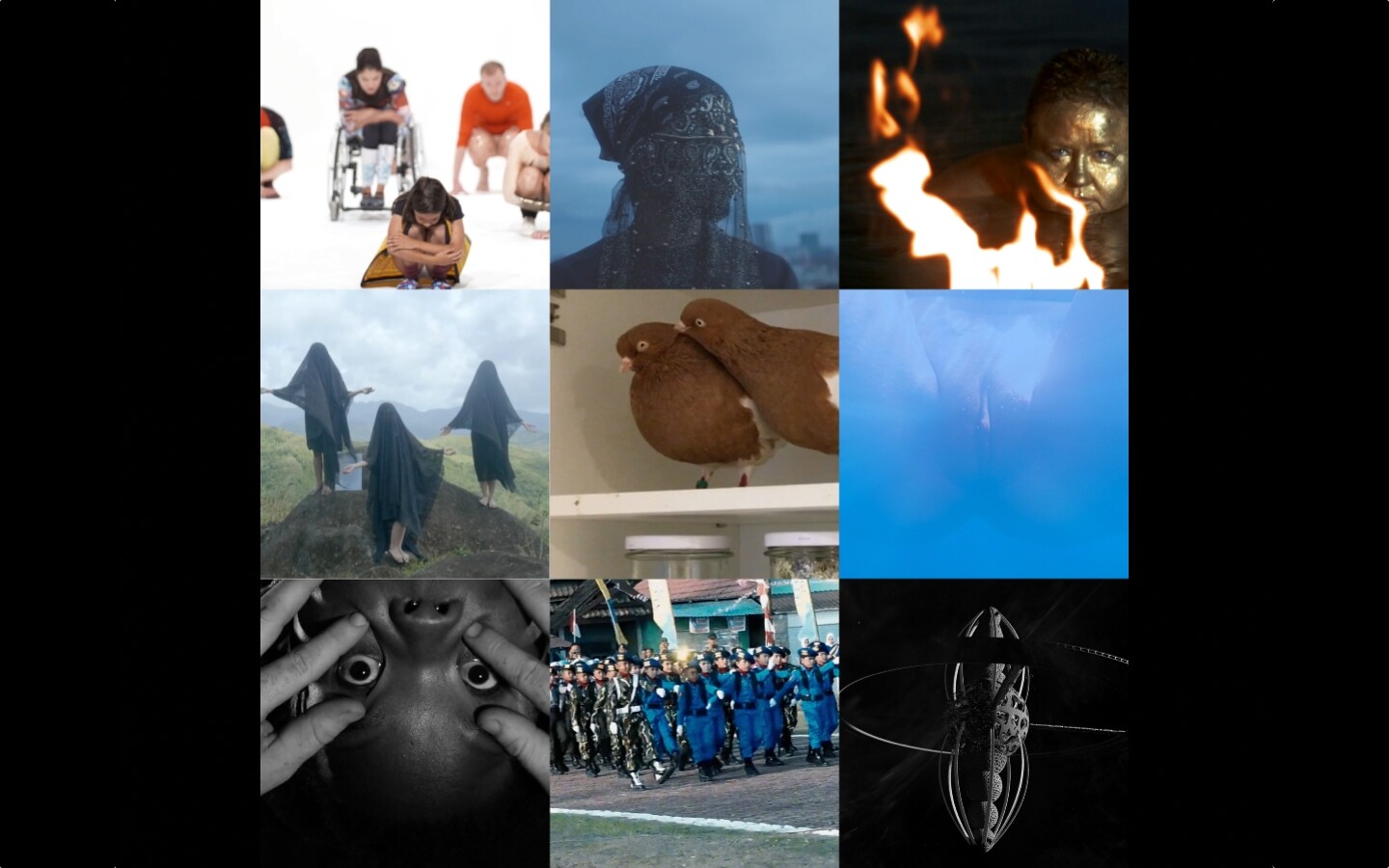An Archive of the Future
November 6, 2021–June 26, 2022
The online platform “100 Ways to Say We” imagines a multitude of futures and speculates about possible conceptions and visions of “We.” Artists, theorists, and activists from around the planet share and propose diverse ways of living together—from the perspective of an imagined future. What emerges is a map of voices, stories, and opinions revolving around the notion of a diverse, contradictory, and ambitious “We.” Looking back at the past, which is our present, and asking: Who do we want to have been? But:
Who is “We”?
Who says “We” on behalf of whom?
Who has the right to do that?
Who is excluded, and who defines who is heard?
“We” implies a common ground, some sort of universalism. But there are reasons to distrust any “We”; to call attention to differences; and to point out privileges as well as hierarchies. By all means of the all-including gesture of “We, the people,” there is also the danger of fragmentation: For decades, neoliberalism has been atomizing society into singularities, undermining collectivity. With the need to create new imaginaries for our future arises the necessity of a new “We”—a transversal collective will in which a multitude of demands come together.
100 eyewitnesses of the future contribute with lectures, talks, performances, videos etc. their speculative, realistic, fictional, analytical, lyrical, and/or musical view on the possible paths ahead of us. In the coming weeks, the archive will continue to grow. “100 Ways to Say We” is a utopian map created in a time of dystopian presence, as well as an archive of hypothetical futures that could expand our sense of possibility and open perspectives we haven’t had before.
“Activations,” a series of conversations in which the contributors discuss questions around the multiplicity of the concept of “We,” can also be found on the online platform.
With contributions by Moayed Abu Ammouna, Preethi Athreya, Aukanaw, Kamran Behrouz, Jérôme Bel, Franco “Bifo” Berardi, Deborah Birch, biriken, Black Dads Germany, COME iN TENT, Emanuele Braga, Benjamin Burger, Brandy Butler, Ilenia Caleo, kaur chimuk & Soumya Mukhopadhyay, Zhao Chuan, Dragonfly, Radha D’Souza, Seraina Dür + Jonas Gillman & the Pigeons Ensemble, Malcolm Ferdinand, Tatiana Filippova, Julia Fritzsche, Benno Gammerl, Goldendean, Helen Hester, House of Tupamaras, Wissal Houbabi, Theater Hora & Stefan Burger, Abraham Hurtado, Invernomuto, Dagna Jakubowska & Gawrońska-Kula, Asmaa Jama & Gouled Ahmed, Kieron Jina, Eisa Jocson, Ranjit Kandalgaonkar, Mikhail Karikis, Zaayan Khan, Oskar Kirmes, Song Long, Ana Longoni & Santiago Suarez Longoni, Sugano Matsusaki, Piersandra Di Matteo, Marvi Mazhar, Mateja Meded, Wu Meng, Mentah, akramul monem, Eleanor Morgan, Ibrahim Nehme & Frida, Adrian Notz, Sunna Nousuniemi, Janiv Oron, Paper Tiger, Dan Perjovschi, Yassine Rachidi, Firi Rahman, Riar Rizaldi, Philip Rizk, Annalisa Sacchi, Alessandro Schiattarella (Army of Love), Gregory Sholette & Themm! Collective, Jonas Staal & Florian Malzacher, Mackda Ghebremariam Tesfau, Françoise Vergès, Angelo Vermeulen & Fred Sena (SEADS), Stefan Winkler, Sik Ying Ho & Felix Hui, Salam Yousry et al.
The online platform “100 Ways to Say We” is a co-production of Theater Neumarkt & Goethe-Institut / Performing Architecture in collaboration with S.a.L.E. Docks & Florian Malzacher
Curated by Marco Baravalle, Hayat Erdoğan, Florian Malzacher, David Niederer, Nikolai E. Prawdzic & Susanne Traub
Concept by Hayat Erdoğan, Nikolai E. Prawdzic & Florian Malzacher
Website design: Juan Ferrari
Project assistance: Lucia Graenicher


